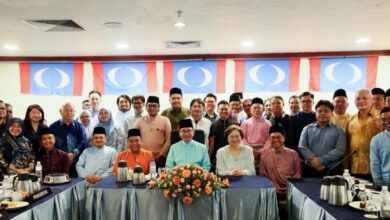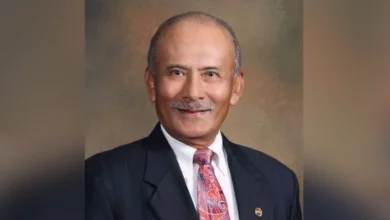With nod to ‘dictator’ label, Dr Mahathir says would have lost PM post in 2020, but chose to resign to not o utstay welcome

© Provided by Malay Mail Tun Dr Mahathir Mohamad acknowledged that he had long been perceived to be a ‘dictator’, but said he was not one to stay beyond the period he would be welcome to do so. — Picture by Yusof Mat Isa
KUALA LUMPUR, Feb 3 ― Tun Dr Mahathir Mohamad today said that he would have actually ceased to be prime minister when the Pakatan Harapan (PH) federal government fell in February 2020, even if he did not resign from the position.
Dr Mahathir acknowledged that he had long been perceived to be a “dictator”, but said he was not one to stay beyond the period he would be welcome to do so.
He noted he had resigned after his first tenure as prime minister from 1981 to 2003, a period spanning 22 years.
“I had always been labelled a dictator by the opposition when I was Prime Minister. I never expected the Opposition to adore me. That would not justify their opposition against me.
“But I resigned in 2003 because I felt I had been PM too long. Dictators don’t resign. But of course those who were against me were not going to stop claiming I was a dictator,” he said in a lengthy blog post today in response to a memoir by former attorney-general Tan Sri Tommy Thomas.
Dr Mahathir then spoke about his February 24, 2020 resignation as both Parti Pribumi Bersatu Malaysia’s chairman and as prime minister of the PH administration.
“I don’t believe in overstaying my welcome. In 2020 I resigned as Bersatu Chairman not because I wished to, but my party had lost their confidence in me. Besides I believed the PH had lost its majority and could no longer be the Government.
“I also resigned as Prime Minister. Actually this was not necessary as the collapse of the PH Government meant I was no longer PM,” he added.

Prior to Dr Mahathir’s resignation as prime minister and Bersatu chairman, its president Tan Sri Muhyiddin Yassin withdrew the party from the PH coalition, which led to the collapse of the government due to the loss of majority support from MPs.
In the same blog post, Dr Mahathir claimed that Bersatu’s supreme council had rejected his advice and appeal for more time to be taken before deciding on whether to pull out of PH.
He said that he viewed the rejection of his advice as meaning that he had lost Bersatu’s confidence and that he must resign as its chairman.
“If I resign as Chairman I no longer represent the party in the PH. So I decided to resign as prime minister as well,” he said.
While Dr Mahathir was on February 24 made the interim prime minister to temporarily manage the country before a new prime minister was appointed, the Yang di-Pertuan Agong had the next day started the process of personally interviewing all 222 MPs on who they wanted as prime minister.
Noting that MPs were made to individually sign a statutory declaration before the Yang di-Pertuan Agong, Dr Mahathir said he did not put himself up as a candidate but “did expect to win”.
Believing that he still had the support of PH then, Dr Mahathir said Bersatu’s Datuk Seri Hamzah Zainudin had obtained statutory declarations from all Umno and PAS MPs to support him as prime minister.
“I thought that my position was strengthened because I had the support of Government MPs as well as opposition MPs. But Hamzah’s plan was to get me to head a new coalition consisting of Umno, PAS and Bersatu. I would still be prime minister and that should persuade me to leave PH,” he said.
“But the Pakatan Harapan MPs did not name me as their candidate when they made their statutory declaration in front of the Agong. Anwar had persuaded them that he had enough support from Sabah and Sarawak MPs and with PH MPs to have a majority to become Prime Minister. So they named Anwar as the PH candidate,” he said, referring to PKR president Datuk Seri Anwar Ibrahim.
“But actually he had the support of only DAP, Amanah and his faction of his PKR. They totalled 92. I managed to get only 62. So both of us lost,” he said.
Eventually, Muhyiddin was on March 1 sworn in as the country’s eighth prime minister.
“When Muhyiddin was named Prime Minister he did not have majority support. But upon his appointment he was able to offer places in his Cabinet to the members who supported me. They crossed over and Muhyiddin achieved a majority of two,” Dr Mahathir claimed today.




